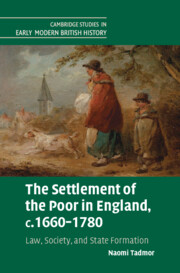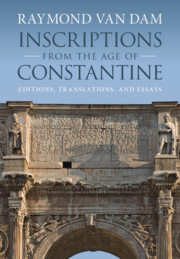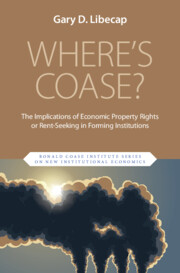Refine search
Actions for selected content:
3411444 results

Why is There Something Rather than Nothing?
- The Fundamental Problem of Ontology
- Coming soon
-
- Expected online publication date:
- March 2026
- Print publication:
- 30 April 2026
-
- Book
- Export citation

Defending Democracy
- Citizenship as a Vocation
- Coming soon
-
- Expected online publication date:
- March 2026
- Print publication:
- 31 March 2026
-
- Book
- Export citation
Flow Cytometry in Hematolymphoid Neoplasms
- A Comprehensive and Practical Guide to Diagnosis
- Coming soon
-
- Expected online publication date:
- March 2026
- Print publication:
- 31 March 2026
-
- Book
- Export citation

Our Metaphorical Bodies
- Why Metaphor May Be Everywhere
- Coming soon
-
- Expected online publication date:
- March 2026
- Print publication:
- 31 March 2026
-
- Book
- Export citation

A Critical Genealogy of Humanism
- Coming soon
-
- Expected online publication date:
- March 2026
- Print publication:
- 31 March 2026
-
- Element
- Export citation

The Settlement of the Poor in England, c.1660–1780
- Law, Society, and State Formation
- Coming soon
-
- Expected online publication date:
- March 2026
- Print publication:
- 28 February 2026
-
- Book
- Export citation

Legislating Peace
- How Gender Diverse Rebel Parties Encourage the Implementation of Gender Peace Agreement Provisions
- Coming soon
-
- Expected online publication date:
- March 2026
- Print publication:
- 31 March 2026
-
- Element
- Export citation

A Concise History of Ireland
- Coming soon
-
- Expected online publication date:
- March 2026
- Print publication:
- 28 February 2026
-
- Book
- Export citation

Textual Genealogies and Shakespeare's History Plays
- Coming soon
-
- Expected online publication date:
- March 2026
- Print publication:
- 28 February 2026
-
- Element
- Export citation

Inscriptions from the Age of Constantine
- Editions, Translations, and Essays
- Coming soon
-
- Expected online publication date:
- March 2026
- Print publication:
- 28 February 2026
-
- Book
- Export citation

Building an Air Force
- The Air Corps and the Formation of US Airpower
- Coming soon
-
- Expected online publication date:
- March 2026
- Print publication:
- 31 March 2026
-
- Book
- Export citation

Where's Coase?
- The Implications of Economic Property Rights or Rent-Seeking in Forming Institutions
- Coming soon
-
- Expected online publication date:
- March 2026
- Print publication:
- 31 March 2026
-
- Book
- Export citation

Hegel's Inversion of Philosophy
- The Metaphysics of the Made
- Coming soon
-
- Expected online publication date:
- March 2026
- Print publication:
- 28 February 2026
-
- Book
- Export citation

Empirical Bayes
- Some Tools, Rules, and Duals
- Coming soon
-
- Expected online publication date:
- March 2026
- Print publication:
- 31 March 2026
-
- Book
- Export citation

Understanding Modern Warfare
- Coming soon
-
- Expected online publication date:
- March 2026
- Print publication:
- 31 March 2026
-
- Textbook
- Export citation

Language as Power in the Language Teacher Education Ecosystem
- Coming soon
-
- Expected online publication date:
- March 2026
- Print publication:
- 31 March 2026
-
- Element
- Export citation

The Neuroscience of Word Meaning
- Coming soon
-
- Expected online publication date:
- March 2026
- Print publication:
- 31 March 2026
-
- Book
- Export citation

Sweet Home Feliciana
- Family, Slavery, and the Hauntings of History
- Coming soon
-
- Expected online publication date:
- March 2026
- Print publication:
- 05 March 2026
-
- Book
- Export citation

Reluctant Abolitionists
- Britain and the End of the Colonial Death Penalty
- Coming soon
-
- Expected online publication date:
- March 2026
- Print publication:
- 31 March 2026
-
- Book
- Export citation

The Spatial Dimension In Environmental and Resource Economics
- Coming soon
-
- Expected online publication date:
- March 2026
- Print publication:
- 31 March 2026
-
- Element
- Export citation
